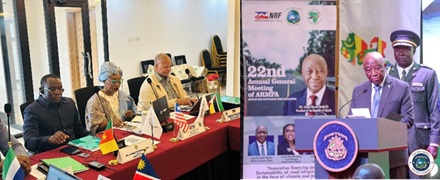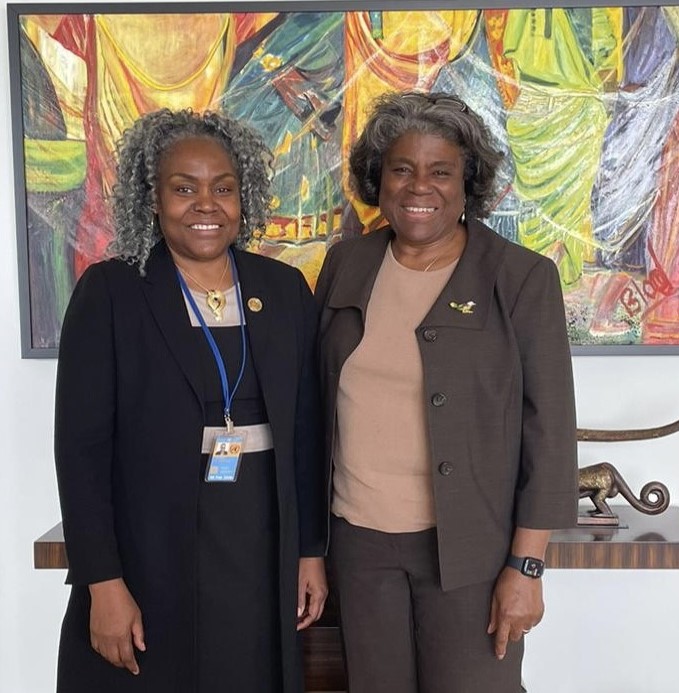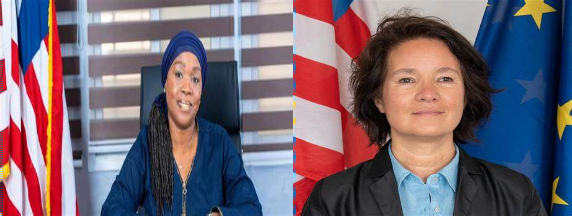In Nimba County, the extensive mining operations of ArcelorMittal Liberia (AML) have become deeply intertwined with the lives of many Liberians, and it is making a shift in the local economy and community landscape.
From job creation and infrastructure development to contributions in education and healthcare, AML’s work has helped bring stability and opportunities to host communities and impacted Liberia’s overall economy.
Since starting operation in Liberia in 2005, ArcelorMittal has grown into one of the country’s largest private employers, providing direct and indirect employment for thousands of Liberians.
For many, AML has offered steady jobs where few other options exist. Many residents of communities surrounding places like Nimba and Buchanan the company’s key operational sites now work as skilled and mainly unskilled personnel, and support staff, after being trained through the company’s workforce development programs. These jobs bring economic stability to families and open doors for new skills and career development that were previously out of reach for most in the area.
Through its operational infrastructure, AML has had a tangible impact on local accessibility and mobility. The company has paid more than 40 million in Corporate social responsibility funding which has helped to build schools, hospitals, markets, and other structures including road connectivity.
The rehabilitation of the historic Buchanan-Yekepa railway, which was destroyed during Liberia’s prolonged civil conflict, has enabled efficient movement of iron ore once more and given life to the mining sector.
AML’s investment to restore the railway has revived a vital transportation route that serves not only the company but also brings logistical benefits to local communities along its route. Roads in the area have also been upgraded, facilitating trade and transport for local vendors and small businesses.
ArcelorMittal’s presence in Liberia has led to steady inflows into the country’s treasury through taxes and royalties, and these financial contributions have allowed the government to channel resources into social services, including health and education. This economic impact extends to the local level, where smaller businesses have also gained from AML’s supply chain needs. From food suppliers to transportation services, many Liberian-owned enterprises have become part of AML’s operational ecosystem, creating further economic opportunity in nearby towns.
In the communities closest to its operations, ArcelorMittal Liberia has directed its social investment initiatives toward health and education, recognizing the direct impact these sectors have on community development. The company has funded the construction of schools, ensuring children in remote communities have access to formal education. For many young people in Nimba and other host areas, AML-funded scholarships and its support to Nimba University have made it possible to pursue higher education, equipping them with skills that may extend beyond the mining industry and contribute to broader economic diversification.
Healthcare investments have also been central to AML’s community support efforts. Health centers near its operations have received funds for essential equipment, supplies, and improvements in infrastructure. Partnerships with local county health teams in Bassa and Nimba have facilitated health education campaigns, disease prevention programs, and donation of essential medicines. In areas where access to healthcare was once limited, these investments have filled critical gaps and supported the well-being of local populations.
Environmental management is a crucial part of AML’s operational mandate, and the company has aimed to mitigate the environmental impact of its mining activities through various sustainable practices. Soil reclamation efforts, tree-planting initiatives, and controlled water usage measures are among the steps AML has taken to maintain ecological balance. Though challenges persist, particularly in balancing industrial needs with environmental concerns, the company’s policies reflect an awareness of its responsibilities toward sustainable resource use and habitat conservation.
Perhaps most importantly, AML engages with its host communities to understand local needs and maintain open communication. Through regular meetings and public forums, AML representatives listen to community feedback and respond to concerns. These discussions have proven essential for transparency and accountability, giving residents a voice in shaping the development that AML’s presence brings to the region.
As ArcelorMittal Liberia embarks on its Phase 2 expansion, which is expected to significantly increase production capacity, its presence is anticipated to bring a new wave of economic activity. This expansion, however, has also raised hopes and expectations among community members for additional local employment opportunities, further infrastructure improvements, and more robust community development projects.
In many ways, AML’s work in Liberia illustrates the complexities of large-scale mining operations in developing economies. While the company has undeniably driven economic growth and brought valuable resources to Liberia, questions remain about the lasting impact on social structures, environmental stewardship, and the equitable distribution of benefits. Host communities continue to voice their desire for even stronger local benefits and long-term sustainability to ensure that development spurred by mining will endure beyond AML’s tenure in Liberia.
Ultimately, ArcelorMittal Liberia’s role in the country represents a balance between economic opportunity and the challenges of resource extraction. Its continued investment in Liberia demonstrates a commitment to nurturing a relationship that, with time, may redefine the legacy of mining in the country.







